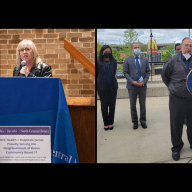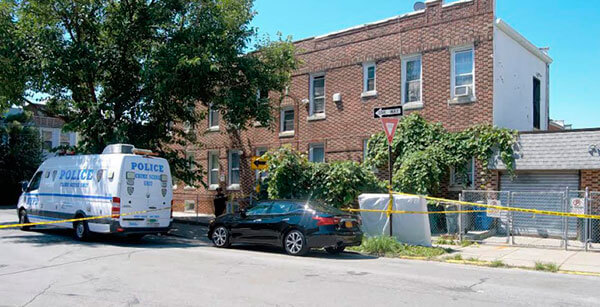Tax season is here, and once again, it has spurred phone scams that prey on the borough’s elderly.
Several sources have confirmed an uptick in a variation of a swindle where someone calls the victim, convinces them a debt is owed and then instructs them to wire money through an untraceable method.
In the past, these scams often involved the use of Green Dot MoneyPak debit cards.
This latest ploy has phone grifters calling our seniors, claiming to represent the Internal Revenue Service or the U.S. Treasury Department.
The victims are told that a debt must be paid immediately or they risk arrest.
Several older adults in the east Bronx have reported receiving these calls, and the public is being asked to be vigilant.
Councilman James Vacca claims that his office is getting phone calls on the matter and that seniors have told him about the problem during visits to senior centers.
“I would urge people who get these calls to realize that most of them are frauds,” said Vacca. “The IRS certainly does not call you on the phone; the IRS would send you a letter.”
The councilman said that the numbers affected by the scam are increasing and he urged taking precautions.
“Never give out any personal information and never volunteer anything. Tell them “thank you” and ask them to send a letter,” he said.
Vacca urges people to record all information from phone calls or voicemails and then pass it along to authorities like NYPD community affairs officers at a local precinct or to the NYS Attorney General.
In general there has been a rise in complaints about phone solicitations related to tax season, said 49th Precinct Crime Prevention Officer Mark Mederos. This is true across the city and the northeast, he said.
“The IRS is not going to call you over the phone, demand immediate payment, and threaten you with arrest if you don’t pay immediately,” said police officer Mederos. “It is just not how the IRS operates.”
The officer said that if someone requests a payment in a specific form, such as a wire transfer or through a specific debit card type, it should raise a red flag.
“I would say just hang up,” he added.
Jack Reith, from Country Club, does not need to be told this. He did not return a voicemail he received recently from a scammer calling himself ‘Steven Martin’ and claiming to represent the U.S. Treasury.
Reith said that he had been told that several seniors in his community had received calls, and that he alerted Community Board 10 and filed a report with the U.S. Treasury on the matter.
“It is a public concern,” said Reith. “When they start using the name of federal, state and city agencies, it is a problem.”

























